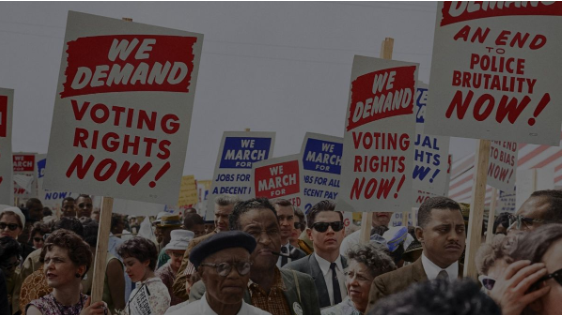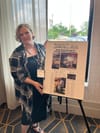Opinion: The battle never ends; it’s not supposed to
by Mark McCormick, KLC Journal August 5, 2025

A kind of romanticism has hovered over the social tumult of the 1960s.
A counterculture movement bloomed and challenged narratives about American military actions in Southeast Asia, with young men burning draft cards and refusing to register with the Selective Service System.
Second-wave feminism led a push for legislative changes and widespread activism. Milestones such as the Equal Pay Act of 1963, Title VII of the Civil Rights Act of 1964 and the Griswold v. Connecticut U.S. Supreme ruling brought women long-sought protections and freedom.
In succession, Black Americans watched as iconic figures such as Medgar Evers, Malcolm X and the Rev. Dr. Martin Luther King were stalked and killed in response to the push for civil rights that included guaranteed access to voting, housing and public accommodations.
Many people born in that era have looked back with a regretful longing, wishing they could’ve participated in those historic moments. Well, current events and civil rights leaders such as Moti Rieber offer just such an opportunity to engage civically, in a time when the stakes seem even higher than in the 1960s.
“I don’t know,” said Moti Rieber, executive director of Kansas Interfaith Action when asked about whether he felt hopeful about the nation’s future. “It’s easy to break things and hard to build them.”
Federal food assistance, Medicaid and education now face large budget cuts. Roughly 15 million will lose health coverage and become uninsured by 2034, according to the Congressional Budget Office. More than 2 million children live in households that would lose at least some Supplemental Nutrition Assistance Program (SNAP) benefits over the next decade. The landscape for funding a college education has significantly changed, with new limits on borrowing and changes to payments plans.
History doesn’t repeat itself, but it rhymes, is a phrase often attributed to author and journalist Mark Twain, and here we stand again, trying to stave off despair in a pitched battle to halt an erosion of rights while attempting to shelter the most vulnerable.
“I think the only thing comparable (to this moment) would be the late Vietnam War period,” Rieber said. “But we were too young to really experience it fully.”
Standing in this storm, romantic feelings of the past lose their luster, replaced with fear and anxiety. Some of us who’d viewed these issues at a safe distance now stand with a chilling proximity and a dose of realism about the dangers of the ’60s and today.
We face a perfect adaptive challenge in this current tumult. We likely cannot resolve these issues, but we can and must make progress.
“I’ve reached the stage where I’m not expecting to win,” Rieber said. “The struggle is all there is, and so, that’s what I take my meaning from. We do the best we can every day and we leave the results in God’s hands. That’s all we can do.”
The fight never ends, and the battle is never won.
We only win by continuing to struggle. We only lose when we quit.
Mark McCormick formerly served as editor of The Journal.
This article first appeared on KLC Journal and is republished here under a Creative Commons Attribution-NoDerivatives 4.0 International License.

